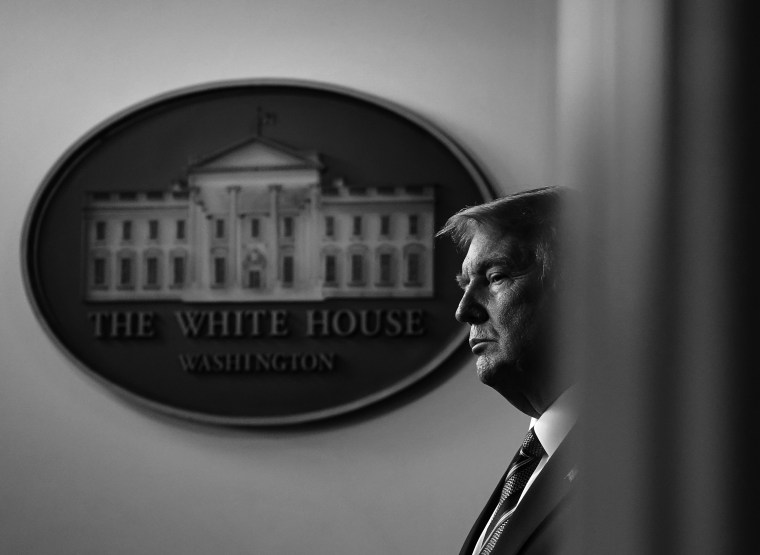Donald Trump continued his campaign against postal balloting yesterday, peddling a familiar series of discredited claims via Twitter, and concluding that the 2020 election cycle in his own country "will be a Rigged Election." What made this latest effort to mislead the public notable, however, was what the social-media platform chose to do about it.
For the first time, Twitter yesterday added a fact-check label to the president's dishonest missives, alerting the public to the fact that Trump's claims are "misleading." Predictably, the president isn't responding well, using Twitter this morning to declare, "Republicans feel that Social Media Platforms totally silence conservatives [sic] voices. We will strongly regulate, or close them down, before we can ever allow this to happen."
It helps set the stage for an interesting discussion about social-media giants, their role in preventing the powerful from disseminating misinformation, and how irresponsible, authoritarian-minded leaders might try to "strongly regulate" or "shut down" media companies they don't like.
But as important as that debate is, and as relevant as the results of the discussion are, let's not miss the forest for the trees. As MSNBC's Chris Hayes noted last night, "The president aggressively attempting to undermine the administration of free and fair elections in the midst of a pandemic is not really in any important way a story about Twitter."
Quite right. Politico had a notable report on this on Memorial Day.
Trump's increasingly amped-up rhetoric surrounding the integrity of the November election is beginning to bring to center stage a previously muted conversation. With the president lagging behind Joe Biden in public opinion polls six months before the general election, his opponents are becoming increasingly anxious that Trump may attempt to undermine the results of the election if he loses -- or worse, might attempt to cling to power regardless of the outcome.
The circumstances may seem familiar. After all, four years ago, then-candidate Trump spent months insisting that the 2016 elections process was "rigged," and nefarious forces were working surreptitiously to deny him the presidency. It was all nonsense, of course, but the Republican seemed eager to undermine public confidence in the integrity of his own country's elections system because he wanted an excuse in the event of his defeat: Trump would say Hillary Clinton's victory was illegitimate and he only lost because the process was manipulated against him.
Oddly enough, after Trump won, he continued to argue that the election that elevated him to power was unreliable, largely as a way to make himself feel better about having come in second in the popular vote.
But the political conditions now are ... different. Ahead of Election Day 2016, Trump wanted a talking point to justify failure. Ahead of Election Day 2020, Trump appears a little too eager to delegitimize his own country's electoral system for reasons that are far less obvious.
The headline on the Politico article read, "Trump sees a 'rigged election' ahead. Democrats see a constitutional crisis in the making." I can appreciate what the editors meant, but the phrasing wasn't quite right: the president doesn't "see" a rigged process; he wants his chunk of the electorate to perceive a rigged process by peddling nonsense that falls apart under scrutiny.
His efforts raise the prospect of some alarming scenarios. If Trump's efforts to subvert the process fail and he loses in November, how far is the Republican prepared to go to contest the results? To what extent is the president prepared to resist a peaceful transition of power?
The fact that these questions exist at all -- including the publication of a relatively lengthy Politico article -- is an extraordinary development. The same piece quoted a spokesperson for Trump's re-election effort calling the speculation "baseless, ridiculous conspiracy talk," and responsible observers can certainly hope that's the case.
It's possible, for example, that the president simply enjoys playing the role of victim, whether it makes sense or not. It's equally likely that Trump is pushing for voting restrictions simply because he believes it'll improve his chances of success.
But I've found myself thinking lately about Michael Cohen, the president's former fixer, who told a congressional committee last year, "Given my experience working for Mr. Trump. I fear that if he loses the election in 2020, that there will never be a peaceful transition of power."
